Remember: We all feel lonely sometimes
Everyone feels lonely at times. However, feeling isolated is more common than you think. For example, the Kaiser Family Foundation (KFF), in partnership with The Economist, conducted a cross-country survey and concluded that more than a fifth of U.S. adults say they feel lonely. The findings, published by KFF in 2018, say this also includes feelings of isolation, being left out, and not having companionship. If you’re wondering how to not feel lonely, don’t fret. Take an active stance against isolation; here’s how some real people make sure they never feel lonely.

Know what loneliness means to you
You might be a solitude-enjoying introvert or you might, out of personal preference, avoid alone time in favor of being with others. A feeling of empty disconnection or a longing to experience a sense of belonging can be a form of loneliness that occurs in the presence of others. On the flip side, a peaceful awareness can arise when one is solo. Observe your emotions and define what loneliness means to you; it’s different for everyone.

Accept your need for connection
Don’t think you have to play it tough and act as though you’re completely fine without others. The need for human connection is undeniable, and a journal article published in 2016 reinforces this. “The idea of a need to belong has deep roots in social psychology,” its author states. So, rather than deny your need for connection, find comfort knowing that it’s a normal human need to interact with others. If you need ideas about how to engage, try these 17 little things you can do to connect with others.

Don’t blame yourself
Melanie Greenberg, PhD, a clinical psychologist in Mill Valley, California, and author of The Stress-Proof Brain, explains that you shouldn’t blame yourself if you feel lonely. “Sometimes loneliness comes from losing a connection from a job or a spouse that died,” she says, adding that there are many variables behind why you may have these feelings. All of the changes that come along during various life stages will likely create loneliness; she says this doesn’t mean anything bad about you. For example, you may may have neighbors you feel you don’t fit in with, but that doesn’t mean you should blame yourself. Sometimes, Greenberg says, people just don’t share the same values. It’s also important to acknowledge that today’s busy times, from the proliferation of social media to the scattered nature of life, can contribute to feeling lonely. This way, you become aware that it’s not “just you.”

Make eye contact
One baby step we can take toward connection simply requires us to notice someone. It just makes sense; making eye contact with a passerby is a warm gesture that has the power to make both parties feel a little more in touch with the rest of the human race. So forget darting glances or ignoring others. You might be surprised at how much better you feel when you make an effort to engage in more eye contact. Besides, eye contact, along with these traits can make you seem more charismatic.

Join a cause-based community
Find an organization that supports a cause you care about so you can surround yourself. As a result, you’ll be with people who have hearts for the same mission. Greenberg says that helping others can make you feel connected to them, and vice versa. This kind of joining together, she explains, usually creates an gratitude-filled experience for everyone.

Join a running club
Running groups can offer a special kind of community; one that might lead to newfound exercise accountability as well as camaraderie. Since running is known for offering union between the body and mind, pushing yourself to physical limits with a group is bound to be a bonding experience. You can find a running group in your area through online searches. There are benefits galore; here’s how starting a running routine helps better your mind and body.
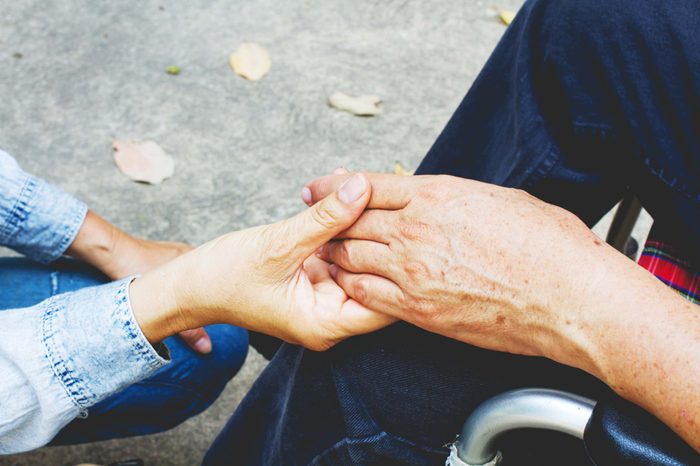
Help people in need
If you’re curious about how not to feel lonely, it can be as easy as volunteering. After all, in addition to meeting others’ needs, it can also make you feel needed. “When you volunteer,” says Greenberg, “you’re with other people who share similar values, so there’s often an instant connection.” You can volunteer at an established organization. However, helping people in need can be significantly smaller, yet still meaningful, gestures like helping a neighbor move or giving a stranger directions.

Send someone a handwritten note
A note from a friend or loved one can be a pleasant surprise in a mailbox full of coupons and bills. “Intuitively, it makes sense that writing a note to someone might help decrease feelings of loneliness,” Greenberg says. She explains that doing so may evoke a sense of connection, especially if the letter is to loved ones who live far away.

Don’t assume money will help
In our material-obsessed culture, we have the tendency blame disconnection on a lack of material possession. After all, you may associate extra money with extra social connections. Not so fast. Research published in 2016 in the journal, Social Psychological and Personality Science (SPPS), notes that “higher household income was associated with less time spent socializing with others.” Of course, this doesn’t mean that everyone with a high income is lonely. Instead, it makes the point that having a great deal of money isn’t necessarily synonymous with, well, a wealth of friends.

Use social media wisely
Instead of connecting us with others, social media can exacerbate feelings of isolation. It’s not so much that social media networks on their own are bad; it’s how we use them. Greenberg says that people on social media aren’t often presenting their true selves. As a result, “you may be comparing your insides to someone else’s outsides,” she adds. Besides, too much time on Facebook or other types of social media is keeping you away from in-person connections that may decrease loneliness.

Be kind to strangers
There’s a well-known quote from writer Anne Lamont: “If you want to have loving feelings today, do loving things: Be kind to people, especially the elderly and yourself.” Giving attention to others creates a kind of lighthearted high. In passing, try telling someone you love their outfit or think they have nice eyes. It’s even better to lavish attention on someone who may be overlooked, like that shy guy bagging your groceries. See, even thinking about doing this makes you smile; these stories about the kindness of strangers will melt your heart.

Find a hobby
Shared interests often lead to social connections, so find the right hobby for you. Consider getting involved in an activity you enjoy and new friendships may follow suit. From antiquing to kayaking, there’s bound to be something you like. Other people may gravitate to your chosen hobby too. In turn, this may increase your chances of making a new friend.

Travel
If you think traveling alone means you’ll be lonely, think again. Nicholas Epley, a professor of behavioral science at the University of Chicago Booth School of Business gives the example of taking a taxi. In a study published in the 2014 Journal of Experimental Psychology, he states that “the private nature of the cab, especially when traveling alone, is more likely to encourage conversation with a driver than a more public setting like a train, plane, bus, or large waiting room.” Consider all kinds of settings while traveling alone; they may be ideal opportunities for you to interact with someone else.

Ping someone in your life
When it seems like your needs for social connection aren’t being met, consider the contacts that are often around you. You don’t need to be super close to someone to say hello. Shoot a text to your old co-worker to ask how they’ve been. Write a quick e-mail to a long-lost cousin to catch up. Your gesture might get you in touch with people you have felt connected to in the past. As a result, you’ll bolster your sense of connection. Here are 24 little things you can do to be a true friend.
Sleep on it
Various researchers, including those from King’s College London in the United Kingdom, conclude that “loneliness is robustly associated with poorer sleep quality in young people.” The details, published in the journal Psychological Medicine in 2017, suggest that more studies are needed to determine the precise relationship between loneliness and sleep issues. It’s important to get decent amounts of sleep. As a result, you’ll probably feel more energized and ready to interact with others. Some strategies for better sleep are limiting caffeine, writing to clear your mind, and trying a different position.

Write a personal story
You might love to keep a diary. Then again, the thought of putting pen to paper might make you cringe. Either way, how not to be lonely may be as simple as writing. When you write, you have the power to shift your perception, especially when you use it to find new ways to interpret emotions, experiences, and inner narratives. For example, Jeremy Nobel, MD, MPH, Harvard Medical School lecturer and an award-winning poet, believes that writing can give you a deeper sense of self. In turn, he feels that a stronger self-connection allows you to grow and develop healthier connections with others. Here are some gripping memoirs to make you feel less alone.

Organize your home
You know that feeling of calm that descends when everything is in order? It’s not just because your hangers are all facing the same way in your closet. When we clean up our physical space, our brain space also frees up. “Doing organizational tasks activates the ‘on task’ centers of your brain, which gets you out of cycles of rumination,” says Greenberg. “Sitting and ruminating about loneliness makes things worse. Doing an organizational task creates active engagement and also activates your logical brain, which can be the antidote to runaway emotionality.”

Go to church, a synagogue, or mosque
It’s no secret that places of worship are typically filled with like-minded people. It’s logical, therefore, that surrounding yourself by others in such a close-knit environment will not only build your faith, but increase your social connections. Go into it with some humor; here are some funny church signs to start off with a laugh.

Do some friendship soul-searching
Information published in the International Journal of Aging and Human Development in 2016 notes that “social relationships protect people against loneliness.” Various age groups where assessed up to 79 years old; intimacy and frequency of contact seemed to be important factors, although they varied throghout life. Make sure you’re getting the most from your social network. Do they have the depth you crave? Consider evaluating your friendships; here’s how to make new friends as an adult.

Try a coworking space
If you work from home, you know that it can be lonely at times. However, it doesn’t have to be that way, especially with the surge in more people working remotely. This makes it possible to find co-working spaces that may help decrease feelings of loneliness. Consider searching for collaborative office-for-rent spaces as well as working out of a local coffee shop or library. All may provide you with networking opportunities. Try an internet search to find coworking spaces in your area.

Listen to music
Science proves there are health benefits to music, and it makes people feel happy. Upbeat tunes can shift your mood, put you in touch with positive memories, or inspire you while working (or working out!) Plus, there’s a chance certain lyrics can make us feel less alone or even more in touch with our loneliness.

Be your own best friend
Talking back to your inner voice with a sense of humor and dose of kindness is beneficial anytime, but especially during a stretch of loneliness. “Learning how to be a best friend to yourself makes you less dependent on others for reassurance,” Greenberg says. “Being aware of your own needs and feelings helps you to be more grounded and present, which can relieve feelings of loneliness or emptiness.” Being your own best friend is a process that can start by learning how to silence that negative voice in your head.

Try to engage meaningfully
Quality conversations can help fight your loneliness more than small talk, which can sometimes lack substance. So even if you interact with a large crowd, if the conversation mostly involves meaningless topics, you could start to feel lonely. All it takes is a few significant conversations for a deep connection to form; here are some solid conversation-starters to get things going.

See a counselor
While loneliness is universal, feeling lonely is an individual experience worth examining. A therapist can help sort you sort through feelings, understand past experiences, and perhaps help you figure out an action plan to move forward. Already in therapy? Here’s how to evaluate your progress if you still feel lonely.

Enjoy serenity that comes with age
Sure, your life has changed since you were younger, but that doesn’t have to be associated with negative feelings. Try to focus on the positive. Embrace all of the life experiences you’ve gained, which can include the serenity that comes with age. Let go of any shame that puts age on par with feeling lonely. While you’re at it, consider reading about these 8 aging myths that everyone needs to stop believing.
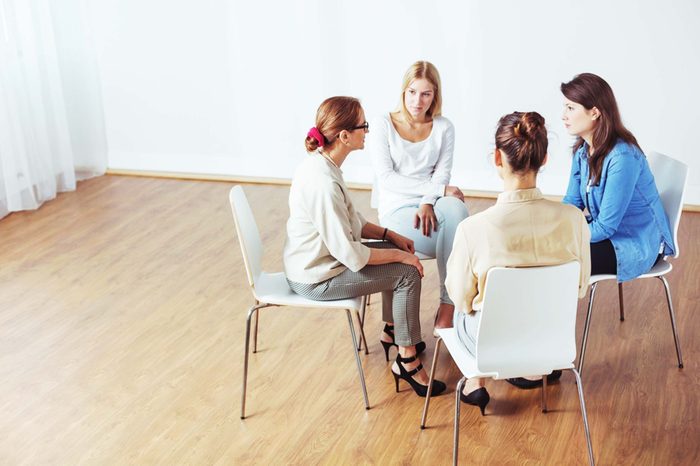
Seek out a relatable story
Loneliness can be brought on by the death of a spouse, job loss, or personal struggle. If that’s the case, consider joining a support group for people facing similar struggles. The common closing statement for Al-Anon is, “Whatever your problems, there are those among us who have had them, too.” Keeping this aphorism close to your heart may make you feel less alone. After all, there are others in the community who probably have similar life experiences as you.

Know the cure isn’t romance
When feelings of disconnection settle in, it can be easy to everything would improve with a love interest. Instead, don’t think of romance as a loneliness cure-all. You can form close bonds with friends and family instead of relying so much on finding a perfect partner. Friends are important; here are 14 secrets to making friendships last forever. So go ahead and reach out to a good pal and ditch thoughts that a romance is the only way to fight loneliness.

Create a social ritual
Life can get monotonous, filled with a laundry list of tasks. Creating something social to look forward to can be just what you need to stay emotionally healthy. Maybe once a month you have neighbors over for dinner or you host a weekly game night for co-workers. Baya Voce, Chief Strategy Officer of Secret Experiences, an experiential design firm to help organizations enhance human connections, has a lot to say small moments. In her TEDx talk, The Simple Cure for Loneliness, she calls social rituals “anchors of connection.” Voce says combating loneliness is not about trying something new but going back to something old. Whatever it is, make it something you enjoy.

Make a list of your social needs
Novelist and Pulitzer prize winner Marilynne Robinson wrote, “Loneliness is an absolute discovery.” Take a cue from her words. Make time to discover your needs before jumping into anything in haste. What are some traits you are looking for in future friends? What has this alone time taught you about yourself and what you’re looking for from others?
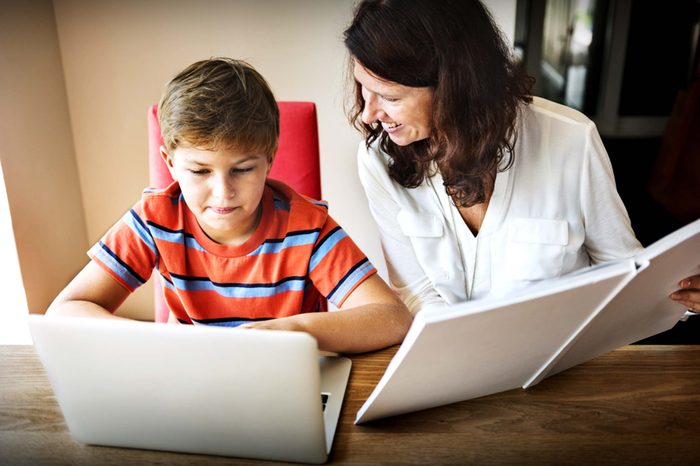
Create a shared experience around your value system
Putting in the effort to plan special experiences with others can be hard if you are feeling doubtful about the lack of close relationships in your life. Greenberg says that people often feel connected when they express and act on their values with others. Look at what you value and decide what areas to target. “Being part of a spiritual, community, or political action group allows you to act on your values together with others,” Greenberg explains. “When you feel deep commonalities of value with others, this helps you to trust them and makes you want to get to know them better.”

Show up to social events
If you’ve been disappointed with social situations in the past, it’s easy to want to skip the invite to a brunch or RSVP “no thanks” to your friend’s birthday party. On one hand, it’s good that you know yourself well enough to realize how you might feel in social situations. On the ohter hand, not moving out of your comfort zone can keep you from forming connections. Here’s how to ease social anxiety to feel less lonely at events.

Deepen a relationship
Feeling distant with a friend or lover? Here’s how not to feel lonely, and it’s really pretty intuitive: try to bond emotionally by playing a game together, asking about each other’s life, or taking a trip together. It may sound basic, but it can help deepen your relationship and decrease loneliness.

Fight the loneliness stigma
Enduring the pain of loneliness can also mean facing the pain of stigmatization. In fact, information in a 2015 issue of the journal, Perspectives on Psychological Science concludes that “even popular and high status individuals can find themselves feeling lonely, and the stigma of loneliness further complicates assessment and treatment.” Public awareness, to include among healthcare providers, is necessary to help fight this stigma. Feeling lonely shouldn’t carry shame or blame, so try not to let negative public perceptions about loneliness get you down.

Listen to a poem
The best art may be able to soothe our deepest sorrows. The poem, “How to be Alone” by Tanya Davis is an incredibly healing manifesto that brings a gentle voice to loneliness. Davis wrote, “Alone is a freedom that breathes easy and weightless and lonely is healing if you make it.” Sometimes, easing your loneliness may be as simple as finding comfort in a poem that truly resonates with you. Another way to feel better is with these 8 foods that scientifically put you in a better mood.

Start a book club
Research has found that reading may foster compassion through narratives. It’s a simple notion; as readers come across like-minded thinkers in the characters they encounter, they may be more likely to engage in helping behaviors. Start a book club and get the best of both worlds; increase your empathetic ways and get the added bonus of social interaction.

Emotionally respond to yourself
In the book White Oleander, Janet Fitch wrote, “If you expect to find people who will understand you, you will grow murderous with disappointment. The best you’ll ever do is to understand yourself.” In other words, we can grow in self-understanding. Relying on others’ understandings about us may bring about emotional setbacks. Tune in to your feelings in the present moment, even if it’s in a state of loneliness.

Consider your childhood
Your childhood may provide clues about your loneliness and possible subsequent depression. A study published in 2018 in the International Journal of Geriatric Psychiatry suggests the importance of assessing your earlier life. “Our findings suggest that smaller social networks and feelings of loneliness are important factors in late‐life depression in older adults with a history of childhood abuse and with an early‐onset depression,” the study states.
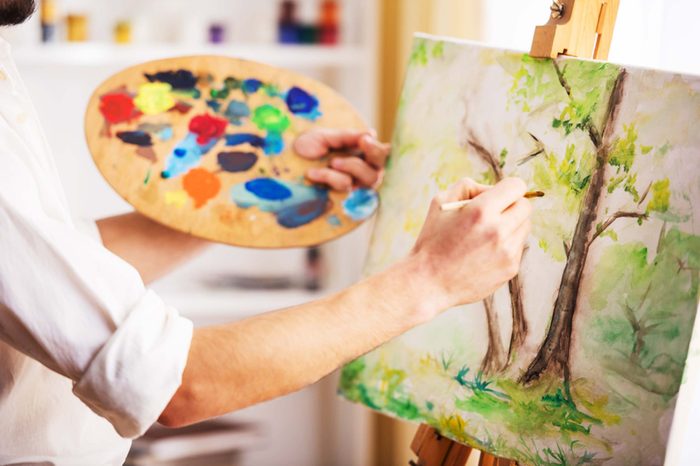
Put your social rejection to use
Why not take feelings of rejection and put them to use? It makes sense that feeling pushed away, may actually catapult you into trying new experiences or adapting new mindsets that encourage change. And with change, often comes newfound creativity.

Connect with children
While catering to a child’s needs can feel sometimes feel overwhelming, being there for little ones is often a way to feel needed and connected. Whether it’s holding their hand across the street or playing a game of tag, being around kids can help you remember how to be lighthearted, vulnerable, and open to receiving help. Don’t forget that there are also 10 facts that prove being around friends is good for your health.

Suffering can lead to kind of beauty
Acknowledge that suffering may have the power to enrich your life. The Elisabeth Kübler-Ross Foundation demonstrates several of the late psychiatrist’s words of wisdom, including her thoughts about suffering. “The most beautiful people we have known are those who have known defeat, known suffering, known struggle, known loss, and have found their way out of the depths.” She went on adding that these people have an appreciation and understanding the fills them will “deep loving concern.”

Go inward
The poet Rumi says, “Do not feel lonely, the entire universe is inside you.” Cultivating a rich inner world through our imagination will allow for enjoyment of interior life. Mindfully processing thoughts, ideas, musings, and new information is a form of intellectual and emotional pleasure that can transport sadness into curiosity and meaning. And by adopting more of these healthy habits, your 80-year-old self will thank you.

Stop lying to yourself
When you are lonely, it’s easy to focus on feelings of sadness or fill your brain with harsh lies. Step out of the negative feedback loop; it’s time to learn how to be kind to yourself. When you stop such negative mind wandering (MW), you may decrease loneliness. After all, a MW study published in the 2018 journal, PLOS ONE, concluded that “…ruminative MW may lead to an increased social distance and have the potential of disrupting our social relations.” As is common with many studies, this one states that more research is needed to better understand MW in various environments.

E.A.S.E
The late John T. Cacioppo, who served as University of Chicago’s director of the Center for Cognitive and Social Neuroscience and chair of the Social Psychology Program, came up with the “EASE” acronym to manage loneliness. It stands for the following: Extend yourself. Have an Action plan. Seek collectives, like people with similar interests. And finally when you do those things, Expect the best.
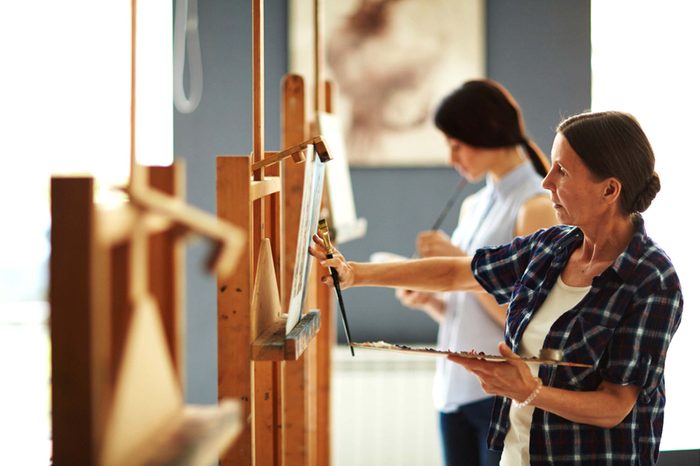
Do something creative
Why not try something new and creative? You’ll learn something different and perhaps meet people in the process. Consider signing up for a painting class or head to a new fitness session that differs from your routine.

Beware of self-preservation
It’s not uncommon for the brains of lonely people to go into self-preservation mode. A study published in the 2016 journal, Cognitive Neuroscience, explained that “loneliness is associated with an implicit hypervigilance to social threats.” This is in line with evolutionary loneliness models that suggests feeling socially isolated can lead to “increased attention and surveillance of the social world and an unwitting focus on self-preservation.”

Join a community garden
Starting or simply joining a community garden can help you connect with the earth and one another. This doesn’t even have to involve talking. “When I joined a community garden, I found joy in simply staking up tomato plants with my neighbors,” wrote Emily White, author of the memoir, Lonely: A Memoir.“Silence doesn’t mean we’re not connecting. It means we are getting a break from being ‘on’ all the time, that we’re making real contact by sharing real things—a common neighborhood, a plot of dirt.”

Host a potluck
Potlucks and community bonds often go hand-in-hand. Therefore, consider initiating a shared meal. Hosting a social event can be a brave step, but it’s one that is likely to render positive results. A potluck could be a gathering with neighbors, colleagues, fellow volunteers, classmates, or old friends. If you ever feel alone, theses quotes might remind you that you’re actually not alone in how you feel.

Take a warm bath
Our brains associate physical warmth with psychological feelings of connection. An older study conducted by Yale researchers noted that “feelings of social coldness and disconnectedness were shown to trigger a need for social warmth that can be satisfied instead by applications of physical warmth, as in taking warm baths or showers.”

Be giving
Don’t forget Greenberg’s words of wisdom about volunteering or giving your time to others. She explains that helping others can foster a sense of connection between both parties. The person in need will feel gratitude towards you, and you’ll feel happy making a difference for someone, she explains.

Stick with it
This one’s pretty intuitive. Stick with your efforts to form meaningful social connections and you’ll be more likely to fight loneliness. In other words, don’t give up. Your stick-to-itiveness when it comes to efforts like volunteering, joining a gardening club, and writing a handwritten note will prove helpful. Give it time and be persistent.
Every product is independently selected by our editors. If you buy something through our links, we may earn an affiliate commission.


